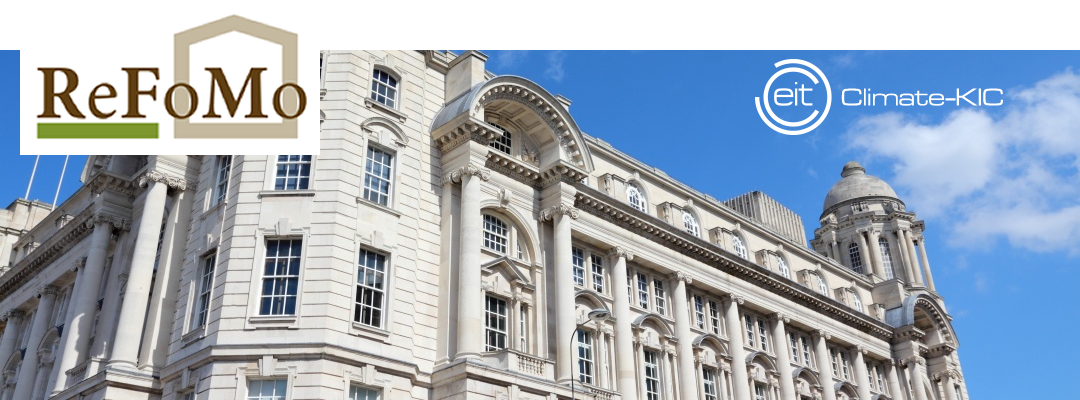C-Fordt in Maarsseveen was the stage for the Kick-off meeting of the new project ReFoMo. Erik van Tooren, initiator of the project on behalf of the Province of Utrecht: “In the summer of last year I was at a Climate-KIC meeting and at some point I thought: why not see if we can reduce the footprints of heritage buildings like the fortresses of the New Dutch Waterline? I made some phone calls to some Climate-KIC partners if they would be interested and some were. And here we are!”. These partners have now come to C-Fordt for the kick-off of the project that will run until the end of 2015.
The fortress C-Fordt is part of the New Dutch Waterline and as such a potential location for the feasibility study that will be carried out within the New Dutch Waterline. The project partners were taken around and through the fortress to see the structure and the functions it has now. Inside, Pascal van Droogenbroeck of Monumentaal, a centre for sustainable develoment and innovation, presented the plans for the fortress: to adjust and extend the building to accommodate new functions but also to experiment with various high tech and low tech solutions for the energy management of the fortress.
The other two feasibility-studies were presented as well. The University of Bologna presented the building of the School of Engineering, a architectural building with a difficult energy management due to different functions and rooms in a broad range of sizes. On the other hand the historical value restricts the possibilities for adjustment and retrofitting. Two partners from Hungary, NEGOS and Minusplus Architects, presented their feasibility-study: a former gasworks building beside the Danube, in Budapest. This building is completely empty and has no current use. Development of the site is difficult due to soil contamination. Their challenge is to retrofit the building without disturbing the soil. Together with Arcadis (NL), University of Utrecht (NL) and Aidico (ES) these partners will analyse these case-studies in order to deliver innovative technical and knowledge-based solutions.
The kick-off meeting was the first chance for the 7 projectpartners to meet each other and take the first steps in the Climate-KIC pathfinder projects. Within a relatively short period of one year the 4 workpackages (market analysis, feasibility studies, synthesis and overall co-ordination and exchange) will have to be carried out. As a start the three feasibility-studies were discussed during the meeting. In the coming weeks the working group will elaborate further actionson the other workpackages.

